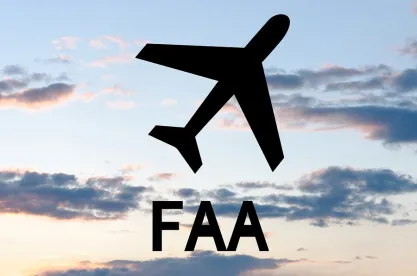Do an airline’s ramp workers qualify as “transportation workers” exempt from the Federal Arbitration Act (FAA)?
This question is pending before the U.S. Supreme Court in Southwest Airlines Co. v. Saxon (No. 21-309), a putative wage-and-hour collective action. The court heard oral argument on March 28, 2022. (Only eight of the nine justices participated. Justice Amy Coney Barrett was recused from this case.)
The Court’s decision is expected by the end of June. It may shape the extent to which employers may enforce arbitration agreements involving a large swath of employees under the FAA.
FAA Transportation Worker Exemption
The FAA’s transportation worker exemption excludes from FAA coverage “contracts of employment of seamen, railroad employees, or any other class of workers engaged in foreign or interstate commerce.” 9 U.S.C. § 1. Oral argument focused on the meaning of the terms “seamen,” “railroad employees,” and “foreign or interstate” when the FAA was enacted in 1925, as used in other federal statutes enacted around this period, and as interpreted by the Supreme Court since.
In recent years, the scope of the exemption has emerged as a significant issue in class action litigation.
The Suit
Latrice Saxon, a Southwest Airlines cargo ramp supervisor, sued her employer. When the airline sought to compel arbitration of her dispute under the parties’ arbitration agreement, Saxon contended she cannot be forced to arbitrate, because she was a “transportation worker” exempt from FAA coverage and, therefore, the agreement was not enforceable.
A federal district court found the transportation worker exemption does not apply in this case and compelled arbitration. The U.S. Court of Appeals for the Seventh Circuit (which has jurisdiction over Illinois, Indiana, and Wisconsin) reversed, in a March 31, 2021, decision. The appeals court reasoned that, even though the employee did not personally transport goods or people in interstate commerce, she was an essential link in the interstate commerce chain and, therefore, exempt from the FAA.
The U.S. Court of Appeals for the Fifth Circuit (which has jurisdiction over Louisiana, Mississippi, and Texas) reached the opposite conclusion in Eastus v. ISS Facility Servs., Inc., a 2020 case involving similar facts.
The Supreme Court granted the airline’s petition for review to resolve the circuit split on the question of “[w]hether workers who load or unload goods from vehicles that travel in interstate commerce, but do not physically transport such goods themselves, are interstate ‘transportation workers’ exempt from the Federal Arbitration Act.”
Oral Argument
The parties disputed whether the transportation worker exemption was intended to reach entire industries or merely particular classes of workers within those industries.
Southwest Airlines’ attorney argued that the exemption “reaches only classes of workers engaged in foreign or interstate transportation.” By using the term “seamen,” rather than “maritime employee,” he said, Congress meant to exempt only workers on board a vessel, often on long voyages, and not stevedores — land-based cargo loaders — or other land-based maritime workers.
Applying this reasoning to the case, he argued that “[c]argo loaders don’t work on planes, just as stevedores didn’t work on ships.” He proposed as the operative test, “[d]oes the class of workers predominantly work on the plane or the train? The way that would translate to the airline industry is as a distinction between flight crew and ground crew. Flight crew are analogous to seamen. Ground crew are not.”
Saxon’s attorney told the Court, “If Congress wanted to exempt from the FAA just those workers aboard an instrumentality of commerce crossing state lines, it easily could have said so. Instead, it excluded the employment contracts of seamen, railroad employees, and any other class of workers engaged in foreign or interstate commerce.” She argued the Supreme Court repeatedly had found that loading and unloading of goods is “not ancillary to transportation or connected to transportation, but it is itself transportation, that it is itself commerce.”
On rebuttal, Southwest’s attorney emphasized, “It’s not a goods-focused inquiry under the statute. The inquiry under the statute has to do with actually moving the goods.” He urged the Court to follow the approach adopted by the Seventh Circuit in Wallace v. Grubhub Holdings, Inc., a 2020 opinion authored by then-Judge Amy Coney Barrett: “[The] test is that transportation workers are those who are actually engaged in the movement of goods in interstate commerce. It’s not enough simply to have a connection to the movement of the goods ... the class of workers must themselves be engaged in the channels of foreign or interstate commerce and in the way that seamen, in particular, were and that railroad employees properly understood in this context were.”
The transportation worker exemption “ought not to be construed in a way that creates a gaping hole, undermining Congress’s purpose” in enacting the FAA, Southwest’s attorney urged.








 />i
/>i
